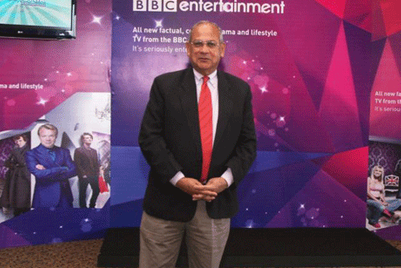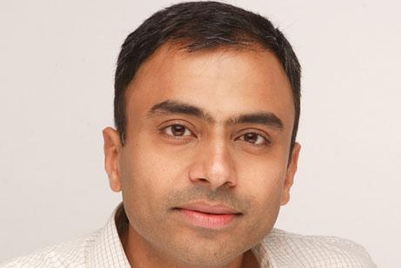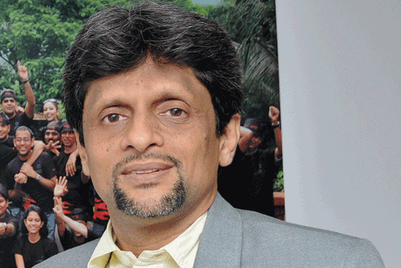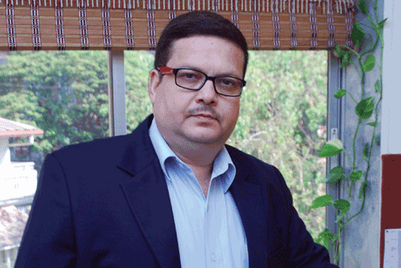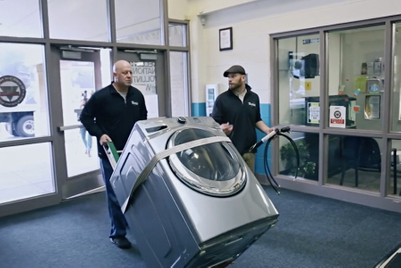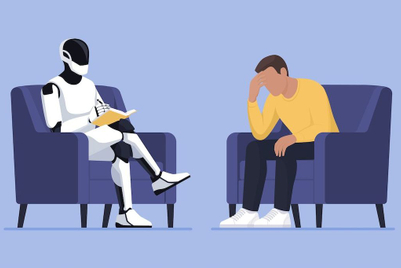
In this DTH 2.0 version of television viewing, there’ll be a handful that would stay on DD National for a while, when surfing through the 800 channels they have an access to. Amidst this audience, you have your very own media veteran, Deepak Shourie, director, BBC Worldwide Channels, South Asia, who still cherishes watching DD Bharati every now and then. Shourie feels, “If DD Bharati were packaged and marketed, it could be India’s ambassador of culture to the world.” Perhaps DD Bharati needed somebody like him who had the knack of marketing his media product in just the right manner.
At BBC Entertainment, Shourie focusses on bringing in what is relevant to its audience at this point. He says, “We could have brought in strips of classic series as ‘special fortnights’ if we were to build the channel only on classics.” But that could have type-cast them into a singular category, perhaps much like an MGM. And one would rather avoid that when competing in a highly glamourous world.
Shourie, who has been associated with BBC Worldwide
Channels for almost two years now, had treaded in media back in 1988, with India Today. He shares, “When Arun Poorie spoke to me about joining their group (in 1988), I thought he wanted to hire a journalist and had mistaken me for my brother, Arun Shourie. He clarified that he wanted a general manager (sales) for the magazine and I took the opportunity head on.”
At India Today Shourie was pivotal in bringing out the regional and business editions of the magazine. Six years later, he moved out to start a new magazine called Outlook, with industrialist Rajan Raheja.
While Raheja wanted a finance magazine, Shourie instead thought of giving the only player in the news magazine business some serious competition. “India Today was too big a mountain not to climb,” Shourie reminisces.
Outlook began its journey from a room in Defence Colony (New Delhi), which belonged to Aditya Tripathi, one of Shourie’s team members. For Outlook, Shourie was managing distribution in addition to sales. He confesses, “For a company that had no knowledge of distribution, the task in hand was certainly not easy, but it was fantastic. Every day brought along a drive to outdo competition.” Shourie mentions that clients were promised that if the magazine didn’t deliver 50,000 copies to begin with, they would refund the proportionate amount invested by the clients.
Four years hence, he joined Hindustan Times (1999) to work with KK Birla and Shobhana Bhartia. At HT, he literally went through ‘baptism by fire’ because the Kandahar hijack happened just a day after he had joined. And it did create a tense situation for media. “But those were challenging times to build viewership and people’s morale,” he says.
In 2002, Shourie joined Discovery Communications India, as executive vice president. In his own words, Shourie describes this part of his career to be “the most non-controversial one”, since the channel dealt with infotainment and not politics. He comments, “We changed Discovery from being ‘good for you’ to a ‘good for company’ organisation.” Apart from changing the content base, bringing the costs down and starting Travel and Living (now TLC), Shourie was also responsible for the distribution JV between Sony and Discovery in India.
Right after this, Shourie joined BBC Worldwide Channels, as director, South Asia. He was hired at BBC by Mark Whitehead, SVP and GM, BBC Worldwide Channels, Asia; who had worked with him earlier, when both were a part of Discovery Networks.
Aligning with its mantra of ‘Seriously Entertaining,’ BBC Entertainment brings together three strands of content –lifestyle, factual and entertainment. Shourie explains that there is a good reason behind bundling the three genres into one channel. To start with, it was an economic option to have launched one channel offering the three genres than launching three separate channels.
Shourie believes in building inventory for the channel in its first year itself. He feels, “Apart from putting in new inventory, repeats are important as well. You offer once but you should publish many times.” He explains how due to high production cost of shows, they have to be repeated and sometimes it’s the repeated shows that get better traction. “People get to know about the shows through word-of-mouth and that leads to better GRPs of repeat telecasts,” Shourie adds.
Elaborating on the packaging of shows for the Indian sub-continent, Shourie says, “Initially we had a lot of variety leading to a checkerboard schedule but that turned out to be an issue.”
They therefore switched to the strip schedule, airing popular shows like Top Gear, Undercover Boss and The Graham Norton Show. In addition, reality shows like Dancing with the Stars, coverage of The Royal Wedding and F1 special for Top Gear, were a few properties that got them both ratings and advertisers in the last one year. Shourie mentions, “We have over 100 top-end advertisers of India advertising with us. We don’t just offer them the right numbers (viewership) but the right kind of environment as well.”
Shourie is extremely gung-ho about the digitisation process which is set to take off this June. He comments, “The cost of distribution and carriage will come down after digitisation, aiding faster penetration, enabling us to make our presence felt in tier-2 and tier-3 markets.” But he notes that the content will have to be modified for those markets at the same time.
Excited about BBC Entertainment’s line up of shows in
sync with the current media scenario, Shourie asserts, “India is an important market for any media company at present. There’s a lot of business coming from aspiring young people who are inclined towards our content. The new schedule that started this January will get us more traction on the channel, and will enable easier navigation for our advertisers.”
The Flip Side
Age 60+
Reading involves No fiction, lot of newspapers, websites
Book The Life of Mao Tse Tung, it shows what people are made of.
Movies The ones that are fun to watch, but I am more of a news person
Holiday destination Thailand
Mantra for life There’s life beyond work


.jpg&h=334&w=500&q=100&v=20250320&c=1)
.jpg&h=334&w=500&q=100&v=20250320&c=1)
.jpg&h=334&w=500&q=100&v=20250320&c=1)
.jpg&h=334&w=500&q=100&v=20250320&c=1)
.jpg&h=334&w=500&q=100&v=20250320&c=1)
.jpg&h=334&w=500&q=100&v=20250320&c=1)

.jpg&h=334&w=500&q=100&v=20250320&c=1)
.jpg&h=334&w=500&q=100&v=20250320&c=1)

